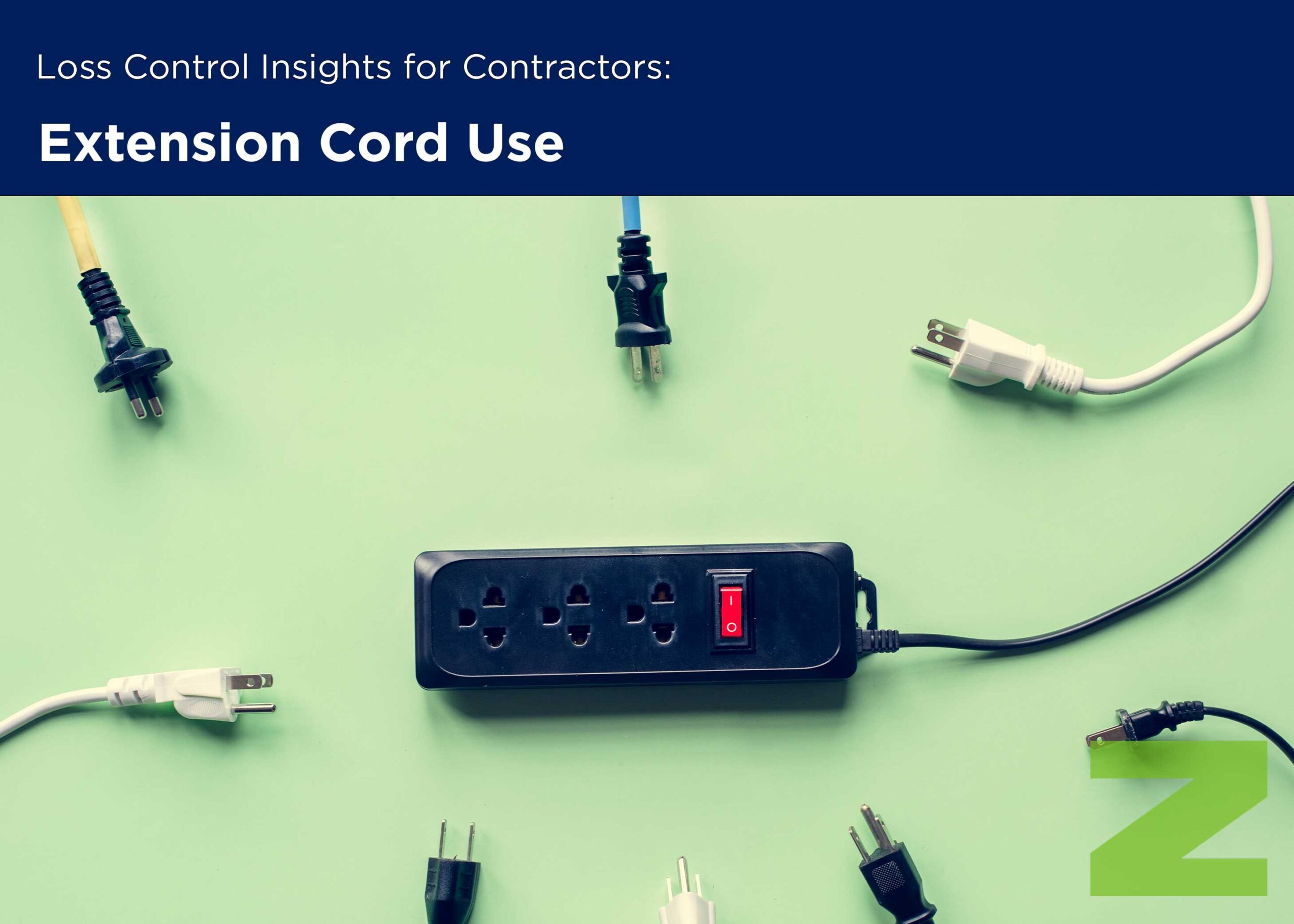Loss Control Insights
The Dos and Don’ts of Extension Cord Use
An extension cord’s gauge refers to the diameter of the wires inside the cord. Wires with a larger diameter can handle more electrical current while smaller diameter gauges handle less current. A cords gauge rating is typically printed on the extension cord. Use this tool to find out what gauge your extension cord should have.
Extension cords can deliver power right where you need it but they can also cause a number of safety hazards if used improperly. Follow these tips to help keep yourself safe when using an extension cord.
- Do not use extension cords as permanent wiring. If you find yourself using the same extension cord for more than 30 days, this may indicate a need for more permanent wiring.
- Do not run extension cords through holes in walls, ceilings, floors, doorways or other openings.
- Do not place extension cords where vehicles, forklifts or other equipment could drive over them.
- Do not remove the cord’s grounding prong.
- Do check your extension cord before use. If you notice any damage to the insulation, remove it from service immediately.
- Do not plug multiple cords together. Select a cord that is long enough.
- Do store extension cords in a dry, indoor place.
- Do match the wattage rating of the tool you are using with the rating on the cord. Do not use a cord with a lower rating than the tool.
For more information on electrical safety, watch EMC’s Electrical Safety online training.





